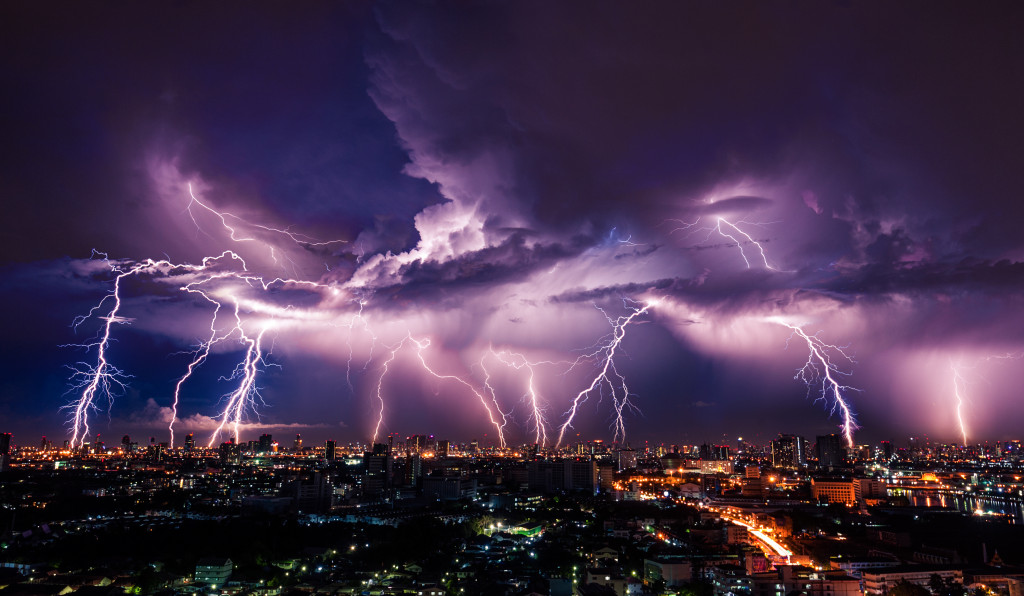- The U.S. frequently experiences storms and hurricanes, which can significantly impact properties.
- Storms can create damage, including roof destruction, basement flooding, window breakage, power outages, and exterior damage.
- Regular maintenance, like roof inspections and basement waterproofing, can help mitigate potential storm damage.
- Implementing specific measures, such as storm windows, tree anchoring, and getting storm insurance, can enhance home resilience.
- Proper preparation and awareness of potential storm hazards can prevent significant future repair costs.
Storms can be a beautiful sight to behold, but they can also be disastrous for your home. From strong winds to heavy rainfall, a storm can cause significant damage to your property. As a homeowner, it’s essential to be aware of the potential hazards storms pose to your home so that you can be better prepared. Here’s what you need to know about storms in the U.S., how they can affect your home, and how you can make your home more resilient against storms.
Storms in The U.S.
It’s estimated that the U.S. experiences 15 storms, eight hurricanes, and four significant hurricanes annually. Storms can generally be categorized into two types: thunderstorms and hurricanes. Thunderstorms are more localized and typically bring short-lived heavy rainfall, strong winds, lightning, hail, and occasional tornadoes. Hurricanes, conversely, have much larger wind speeds and cover a larger area than thunderstorms.
Hurricanes are classified according to their intensity based on the Saffir-Simpson Hurricane Wind Scale. Category 1 and 2 hurricanes are considered the least dangerous, while category 3 and 4 hurricanes can cause severe destruction.
How Storms Can Affect Your Home
The severity of damage a storm can cause depends on its intensity, the region it affects, and how prepared your home is for extreme weather. Here are some common ways it can affect your home:

1. Damaged Roof
A strong storm, especially with high winds, can easily cause damage to your roof. Shingles can loosen, break, or even be blown off the top. If your roof is damaged, it can lead to leaks which can cause further damage to your home’s interior. It’s essential to keep your roof well-maintained and to inspect it after a storm to look for any damages. Additionally, it’s good to replace it whenever you can. A local roof replacement can do this for you. The service can check your roof for any damage and replace your roof in no time.
2. Flooded Basement
Heavy rainfall can cause water to seep into your basement, leading to flooding. Water in your basement can damage walls and flooring and also cause mold and mildew growth. Keeping your basement waterproofed can prevent flooding from heavy rainfall.
3. Broken Windows
High winds and heavy rain can cause tree branches or debris to smash into your windows, causing them to shatter. Broken windows are a safety hazard and can damage your home’s interior further. Keeping your windows shut during a storm can help prevent them from breaking, and installing storm shutters can offer additional protection.
4. Power Outages
Storms can cause power outages, leaving your home without electricity for an extended period. This can be a big inconvenience and cause problems like frozen pipes or food spoilage. Investing in a generator can provide backup power during an outage.
5. Exterior Damage
In addition to damage to your roof and windows, storms can also cause damage to the exterior of your home. Strong winds can take down fences, damage siding, and even uproot trees, causing potential safety hazards. Regular maintenance, such as trimming trees and securing outdoor furniture, can help prevent damage.
Ways to Make Your Home More Resilient
Thankfully, you can make your home more resilient against storms in various ways. Here are four effective ways:

Storm Windows
Certain kinds of storm windows are designed to withstand strong winds and heavy rain. Installing these windows can help protect your home from the elements and prevent broken windows.
Anchoring Trees
Anchoring a tree to its base with guy wires prevents it from toppling over during strong winds. It’s essential to consult a professional arborist to ensure it is properly installed.
Installing Generators
A generator can help provide power in case of an outage and prevent your home from being without electricity for an extended period. Different types of generators are available, so choose one that’s right for your needs.
Investing in Storm Insurance
Storm insurance can help protect your home from any damage caused by storms. Do your research and find the policy that best fits your needs.
Storms can be destructive, but with proper preparation, you can make your home more resilient against them. Being aware of the potential hazards storms pose and taking proactive steps can help you be better prepared if a storm ever comes your way. Taking these steps now can save you from having to repair significant damages in the future.

